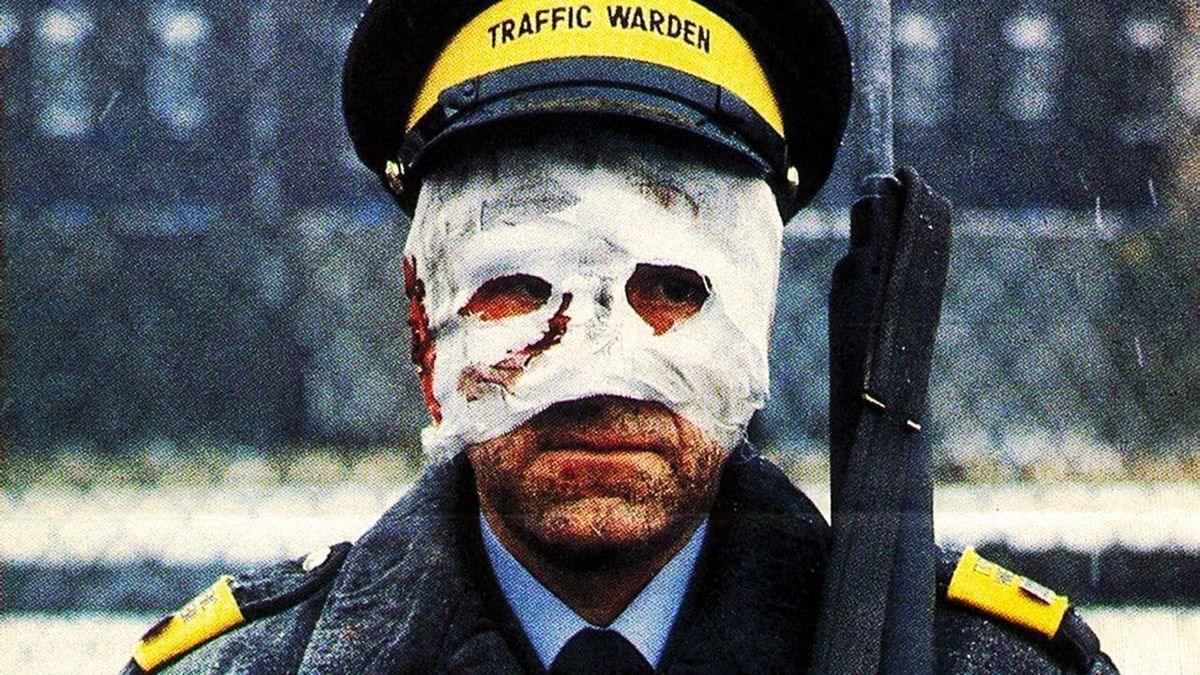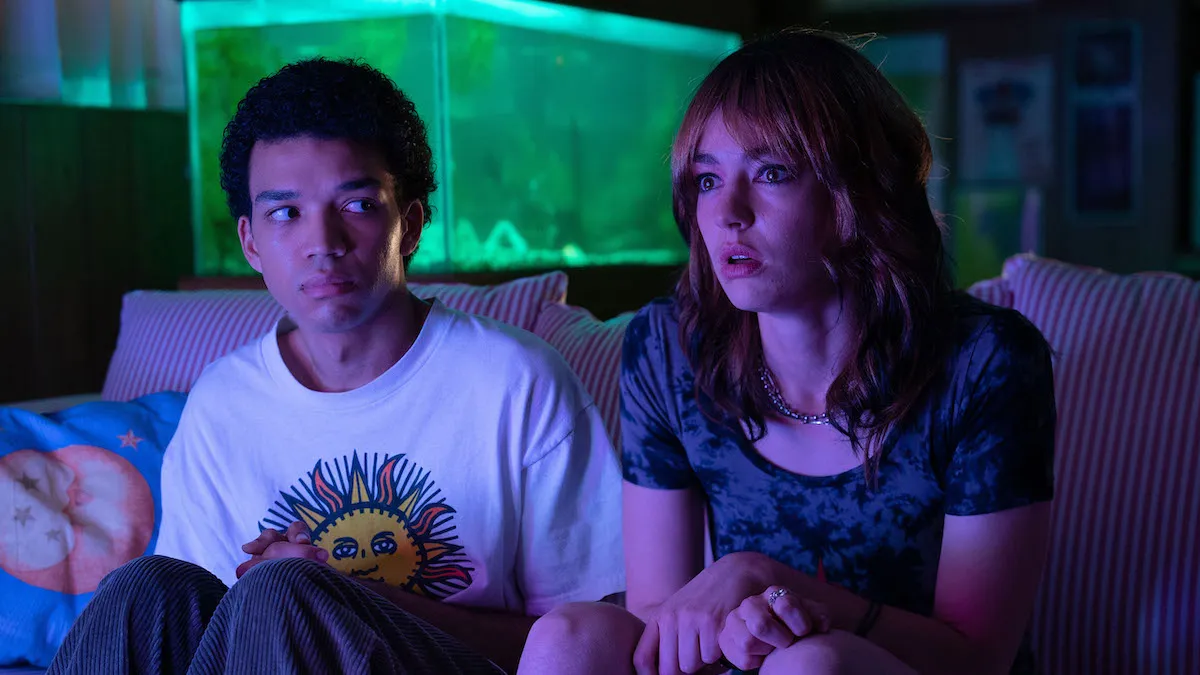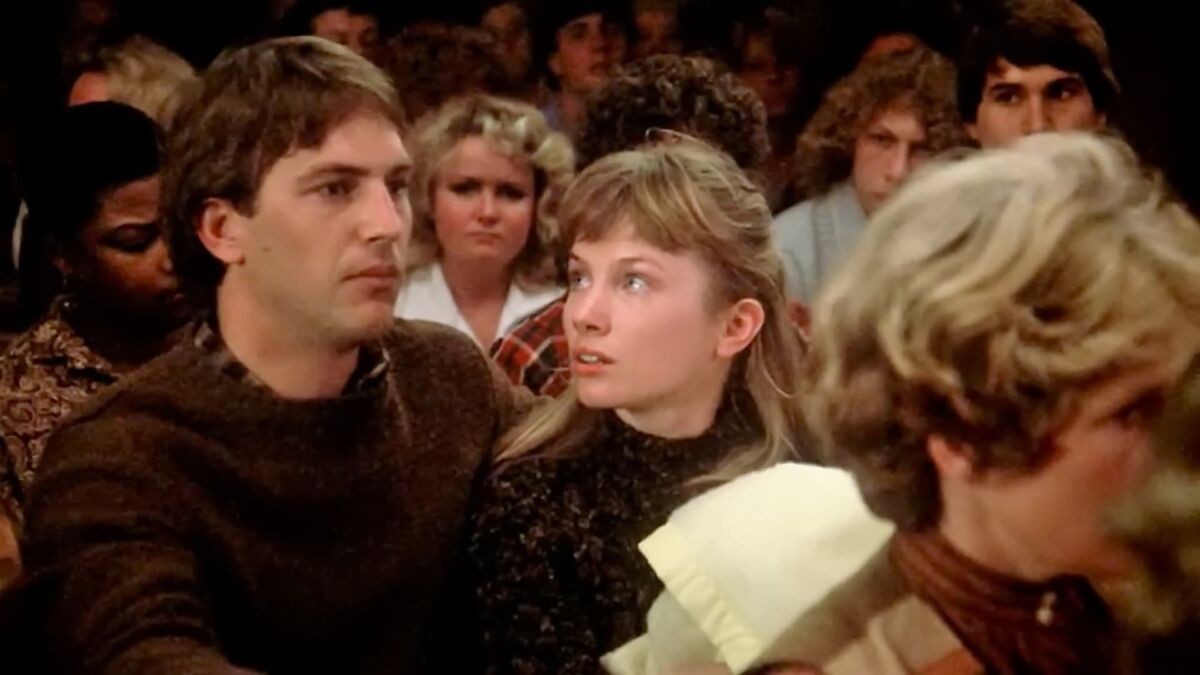
Are you looking for a feel good movie to curl up with on a rainy day? Keep looking. The rain will be coming from your eyes in torrents while watching these thoroughly depressing films. Tragic in the most Shakespearean sense of the word, each of these cinematic downers take a turn from bad to worse before ending up at just plain awful. There are no happy endings here, just varying degrees of miserable. “Sit back and relax” isn’t quite how you should prepare for watching the 10 most depressing movies ever made. You should be lying completely prone with a box of tissues, blinds drawn, plunged into total darkness – that’s the only way to watch these morose masterpieces.
Melancholia

Beginning with the Master of Melancholy himself, Lars von Trier’s Melancholia is a bummer from title alone. It’s the story of Justine, a depressed newlywed whose mood is further darkened by a bright object in the night sky. Scientists have spotted a rogue planet named “Melancholia” in the heavens, and it’s on a hellish collision course with the Earth. As Justine’s family and friends succumb to panic and dread, the newlywed feels oddly comforted by the impending doom – as if the universe itself is holding a mirror to her inner world. Things don’t end well, they end with the fiery destruction of our planet and everyone on it. It’s not a spoiler, it’s an inevitability that the film shows us in the first five minutes. When you watch a tragedy, you know that the ending won’t be happy, it’s what you signed up for. For Justine, it’s a relief.
Requiem For A Dream

The poster child of depressing cinema, Darren Aronofsky’s Requiem For A Dream is about as fun as lead poisoning. It’s the story of four separate characters who are each addicted to drugs, whose intertwining lives lead them down a dark path of delusion, desperation and despair. Like gangrene setting in to a rotting limb, each character’s inability to deal with their addiction causes their lives, their relationships, and even their minds to atrophy. It’s a story of people who haven’t given up on hope, though hope has given up on them. The worst part? The film makes it pretty clear from the jump that none of these characters are going to make it out of their awful situations – they themselves just don’t know it yet. Like a horror movie that makes you want to scream at the screen, you’ll be shrieking at these characters to make better choices, all the while knowing they’re already doomed.
The Mist

Adapted from a Stephen King novella, Frank Darabont’s The Mist manages to out-horrible the King of Horror himself. Like everything else King has written, the story is set in Maine, and follows a group of civilians trapped in a grocery story after a mysterious mist has settled upon their small town. An unfortunate few fatally learn that the mist is full of Lovecraftian horrors that hunger for human flesh, and the remaining survivors are left to fend for themselves inside the claustrophobic supermarket. While King’s original story ends with hope, this film delivers one of the most emotionally crushing endings in all of cinema. It’s an unexpectedly brutal twist, a dark irony that’s sure to haunt you forever. If I had a choice, I’d rather suffer the monsters than the emotional fallout of that last scene – at least the monsters would make it quick.
Blue Valentine

The ultimate doomed relationship movie, Blue Valentine will have you thinking twice before going on a date ever again. Directed by Derek Cianfrance, the film flip-flops between the past and future of couple Dean and Cindy – showing their fiery courtship and ice cold marriage. The emotionally volatile pair certainly care about one another, but their own inability to deal with their past trauma cause them to mirror the very unhealthy family dynamics that they had hoped to escape. There’s a saying, “without therapeutic intervention, we become one parent and marry the other” – and the this film is the perfect example. Dean and Cindy aren’t the only ones that need therapy by the way, you’ll need it too after watching this crusher. Just devastating.
Threads

Threads by Mick Jackson is set in a world devastated by nuclear war, and follows the fallout of the conflict – no pun intended. After a warhead is dropped on Britain, soon to be newlyweds Ruth and Jimmy are left fighting for their lives. The blast didn’t kill them, but the radiation, the violent looters, the dying crops, and the nuclear winters are trying to their best to finish the job. This isn’t a story of survival, it’s the story of the end – and end this is coming painfully slow. After getting through the abysmal experience of watching this film, you’ll be well prepared to deal with the consequences of nuclear war. When the mushroom cloud appears, run towards the flash – fiery immolation is far less painful than the slow decay of the alternative.
I Saw The TV Glow

A pioneer of the “nostalgia horror” genre, Jane Schoenbrun’s I Saw The TV Glow is the story of Owen and Maddy – two teenage outcasts who share a bond over their mutual love of late night TV series The Pink Opaque. After Maddy inexplicably disappears without a trace, Owen is left with a gaping emotional wound from the loss of his only friend. That wound is reopened years later when Maddy suddenly returns to Owen’s town with a chilling revelation: the lives they remember weren’t actually theirs, and The Pink Opaque was more real than they realize. Eeriness gives way to deep depression when Owen decides to shut his ears to Maddy’s warning, conforming to the life that is expected of him rather than the one he wants. The true devastator of this film? The idea that while we’re all given the time change our lives, eventually that time runs out.
Grave of The Fireflies

Directed by Isao Takahata, Grave of The Fireflies tells the story of Seita and his sister Setsuko – two children left orphaned in the devastation of World War II. After the death of their mother, the pair are forced to trek across a ruined Japan, fending for their lives alongside countless other refugees. A lesser film would show young Seita and his baby sister overcoming the overwhelming odds stacked against them, but Takahata is more interested in the brutal realities of war and the lives it claims. Though Seita does his damndest his little sister safe, in the end he’s just a child himself – powerless in the face of forces beyond his control. It’s an emotionally devastating elegy, a portrait of love, life and innocence lost.
Testament

When it comes to making a throughly depressing film, there’s no better subject matter than nuclear war! Lynne Littman’s Testament is the story of the Wetherly family, whose quaint suburban life is upended by the sudden coming of atomic fire. As mushroom clouds pockmark America, the family struggles to survive while supplies and sanity dwindle. There’s no water, no food, no fuel, no medicine, and eventually no hope. Like the other nuclear war films on this list, Testament plays out like radiation poisoning – slow agony until the merciful end. At least when the end comes for the Wetherlys, it comes on their terms.
We Need To Talk About Kevin

Lynne Ramsay’s We Need To Talk About Kevin… oh God… do we really need to talk about Kevin? Hasn’t this tearjerker of a list gone on long enough? Fine, you asked for it. This is the story of Eva Khatchadourian, a mother who had the misfortune of giving birth to a bonafide psychopath. There was something off about Kevin since the day he was born. He was a tearful baby, a combative toddler, and an emotionally distant child. As Kevin ages, the signs of his violent nature begin to show. His little sister keeps mysteriously getting hurt when she’s left alone with him, the family’s guinea pig has gone missing, and Kevin’s developing an unhealthy obsession with his bow and arrow. When you’re a mother to budding evil, what do you do? Accept it? Fix it? Lock it away? Eva tries to figure out the answer for herself, with devastating consequences.
Atonement

Adapted from an equally depressing novel of the same name, Joe Wright’s Atonement tells the story of 13 year old Briony Tallis, who lives on her wealthy family’s estate with her sister Cecilia in mid 20th century Britain. Briony has a habit of spying on Cecilia, and after mistaking a hookup between her sister and the housekeeper’s son Robbie as something more sinister, she inadvertently derails the lovers’ lives forever. The emotional devastation plays out alongside the physical devastation of the Second World War, leaving Cecilia, Robbie and Briony shattered by the film’s end. The most awful part? The film is an almost love story – a story of what could have been, but never was. And though Briony meant well, the annihilation of that love is all her fault.
Have a tip we should know? [email protected]







